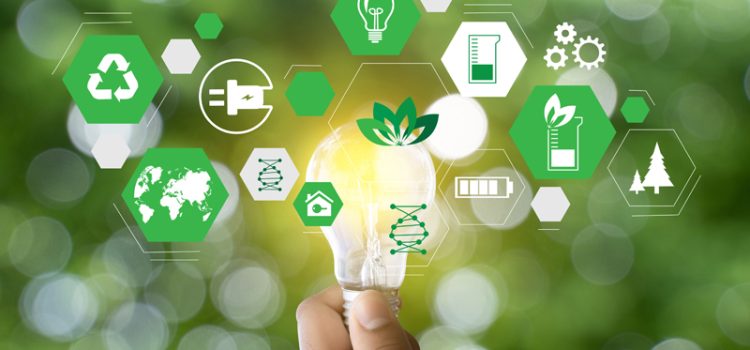
As the world strives to combat climate change and reduce its carbon footprint, the electrical industry is at the forefront of innovation and sustainability. In recent years, significant strides have been made in developing sustainable options for generating, storing, and consuming electricity. In this blog, we’ll dive into the latest sustainable options in the electrical world, from renewable energy sources to energy-efficient technologies and smart grid advancements.
Renewable Energy Sources
Renewable energy sources, such as solar, wind, and hydropower, continue to gain momentum as sustainable options for generating electricity. Solar panels have become more efficient and affordable, making them accessible to homeowners and businesses alike. Wind turbines have also seen advancements in design and efficiency, harnessing the power of the wind to generate clean energy. Hydroelectric power, which utilizes flowing water to generate electricity, remains a reliable and sustainable option in many regions.
Energy Storage Solutions
Energy storage solutions, like advanced batteries, are essential for maximizing the potential of renewable energy sources. Lithium-ion batteries have dominated the market, but research and development are focused on improving their energy density and lifespan while exploring alternative materials. Home battery systems are becoming increasingly popular, allowing users to store excess energy generated from renewables and use it during peak demand or outages.
Smart Grid Technology
Smart grid technology is revolutionizing the way electricity is produced, distributed, and consumed. These advanced systems use real-time data and communication networks to optimize energy use, reduce wastage, and improve overall grid reliability. Smart meters, sensors, and automation enable better demand response, grid management, and integration of renewables, ultimately leading to a more sustainable and efficient electrical infrastructure.
Energy-Efficient Appliances and Lighting
Energy-efficient appliances and lighting have made significant progress in reducing energy consumption. LED lighting, for example, is not only more energy-efficient but also longer-lasting than traditional incandescent bulbs. Energy Star-rated appliances are designed to consume less energy while delivering the same level of performance, offering consumers eco-friendly options for their homes and businesses.
Electric Vehicles (EVs)
The adoption of electric vehicles (EVs) is a major step towards sustainability in the electrical world. EVs produce zero tailpipe emissions and rely on electricity as a clean energy source. The growing availability of charging infrastructure, coupled with improvements in battery technology, is driving the transition towards a greener transportation sector.
Distributed Energy Resources (DERs)
Distributed Energy Resources (DERs) encompass a variety of decentralized energy technologies, including rooftop solar panels, small wind turbines, and combined heat and power (CHP) systems. These resources allow individuals and businesses to generate their own electricity and reduce reliance on the grid, contributing to a more sustainable and resilient energy ecosystem.
Electrification of Heating and Cooling
The electrification of heating and cooling systems is another trend in the electrical world that promotes sustainability. Heat pumps, both air-source and ground-source, are highly energy-efficient and can be used for both heating and cooling. Electrifying these systems reduces reliance on fossil fuels, resulting in lower greenhouse gas emissions.
Grid-Interactive Buildings
Grid-interactive buildings are designed to optimize energy use by intelligently managing energy loads based on grid conditions and electricity prices. These buildings incorporate technologies like demand response, battery storage, and on-site renewable generation to minimize energy costs and reduce strain on the grid during peak demand periods.
Green Data Centers
Data centers are known for their energy-intensive operations, but green data centers are changing that perception. These facilities are adopting renewable energy sources, high-efficiency cooling systems, and advanced power management to minimize their carbon footprint. As our reliance on digital services grows, green data centers are crucial for reducing the environmental impact of the tech industry.
Carbon-Neutral Initiatives
Many companies and organizations are committing to carbon-neutral initiatives by offsetting their electricity usage through renewable energy purchases and carbon credits. These efforts not only reduce greenhouse gas emissions but also encourage the development of more sustainable electrical options on a larger scale.
The electrical world is undergoing a remarkable transformation towards sustainability. From the rapid expansion of renewable energy sources to advancements in energy storage, smart grid technology, and energy-efficient solutions, the industry is driving significant change in how we generate and consume electricity. Embracing these sustainable options is not only crucial for reducing our environmental impact but also for building a more resilient and efficient electrical infrastructure for the future. As we continue to prioritize sustainability, these innovations will play a pivotal role in shaping the electrical world of tomorrow.



